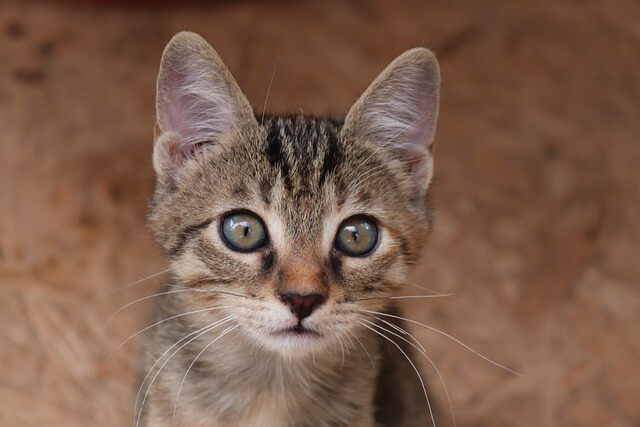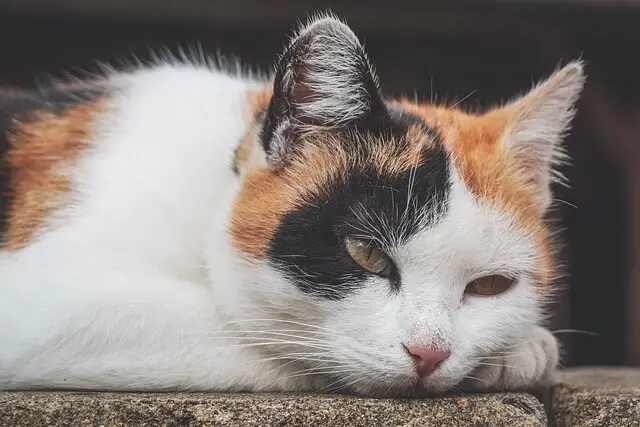Cryptorchidism In Cats - Causes, Symptoms & Diagnosis
17.11.2022.
Cryptorchidism in cats is a health condition that can affect a small percentage of unneutered male cats. Although it is not a common health issue, we can see it more often because people continue to breed cats with this condition.
This is not a painful condition for the cat, but it must be addressed early. Otherwise, your cat could develop testicular cancer. Here is everything you need to know about cryptorchidism in cats.
What is cryptorchidism?
Cryptorchidism in cats is a medical condition explained as a failure of one or both testicles to descend into the scrotum. The journey of the testicle starts near the kidney in the abdomen, and when the cat reaches 2 months old, the testicle can descend into the scrotum. Usually, cryptorchidism can be noticed from 2-4 months of age.
If the testicle doesn't reach the final destination, it could be retained in the abdomen or anywhere in the path to the scrotum.
IMPORTANT: Cryptorchid cats should never be used for further breeding.
Suppose only one testicle fails to descend into the scrotum. In that case, this condition is usually called unilateral, while when both of the cat's testicles fail to descend into the scrotum, it is called bilateral. The majority of cats will experience unilateral cryptorchidism.

RELATED: Is My Cat Pregnant? Here’s How You Can Tell
What are the causes of cryptorchidism?
The exact cause and reason for this medical condition are still unknown, and we know that it mostly affects purebred cat breeds. Usually, this will happen because of "bad" breeding, including inbreeding and using cryptorchid cats for breeding.
Symptoms of cryptorchidism in cats
If one of both of your cat's testicles is not present in the scrotum by the age of 2 months, you can start to assume he is a cryptorchid. This is not a painful condition; only a few cats could experience little pain in the abdomen, although it is not so common.
There are a few other symptoms connected to cryptorchid cats, and they include
- Aggression
- Infertility
- Marking
- Inflammation
The biggest concern with cryptorchidism in cats is that retained testicles could develop into cancer and cause additional problems for your cat. Because of that, it is important that you find out if your cat is a cryptorchid or not to remove the possibility of him developing cancer later in his life.

RELATED: When Do Newborn Kittens Open Their Eyes? All You Need To Know
Is there any breed prone to this problem?
Generally speaking, all cats could develop this condition, but some cat breeds are most prone to it.
Cryptorchidism is most commonly diagnosed in:
- Persians
- Ragdolls
- Himalayans
Usually, cryptorchidism will appear in the family of the same cats because this will, in most cases, be an inherited health condition.
How is cryptorchidism diagnosed?
This condition is pretty easy to diagnose – if you can't feel the testicle (s) from the outside, in most cases, this will indicate cryptorchidism. If your vet is unsure, he may demand additional ultrasound or radiographs to find the location of this retained testicle.

RELATED: Miscarriage In Cats - All You Need To Know
What is the correct treatment for cryptorchidism in cats?
There is only one correct treatment for cryptorchidism in cats, and that is – neutering. If you own a cryptorchid cat, you have nothing to think about, and you must neuter him to preserve his health.
IMPORTANT: Most vets will not want to neuter your cat until he is 9 months old.
If you decide not to neuter your cat, there is a high possibility that your cat will develop some health-related problems later in life, with cancer and testicular torsion being the most common ones.
GOOD TO KNOW: Unneutered cryptorchid cats have a 15% more chance of developing testicular cancer.
What is the prognosis for these cats?
The prognosis is excellent if you decide to neuter your cat to remove the retained testicle. This is a standard procedure, and there should be no additional complications. Some cats may even come home the same day after surgery, while others must stay in the clinic for two days.
In the days after the surgery, it is recommended to decrease the number of activities your cat receives and to keep her inside. Your vet will also suggest using an Elizabethan collar to prevent your cat from licking, chewing, or biting the place of an incision.
Further, you will only have to ensure that the incision area is not red or swollen, which can indicate some infection.
RELATED: How Long Does a Cat Stay In Heat?
Should I neuter my cat?
Neutering in this situation should always be performed to help your cat and preserve his health. In other cases, when your cat is not a cryptorchid, we suggest you neuter your cat unless you are planning to breed him.
How can I prevent cryptorchidism in cats?
Since this is a genetic condition, there isn't much you can do. If you are a breeder, you need to ensure that you don't breed cats diagnosed with cryptorchidism because if you do, there is a high possibility that your kittens will also have this condition.
World Cat Finder Team







Share